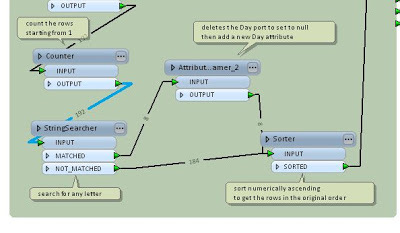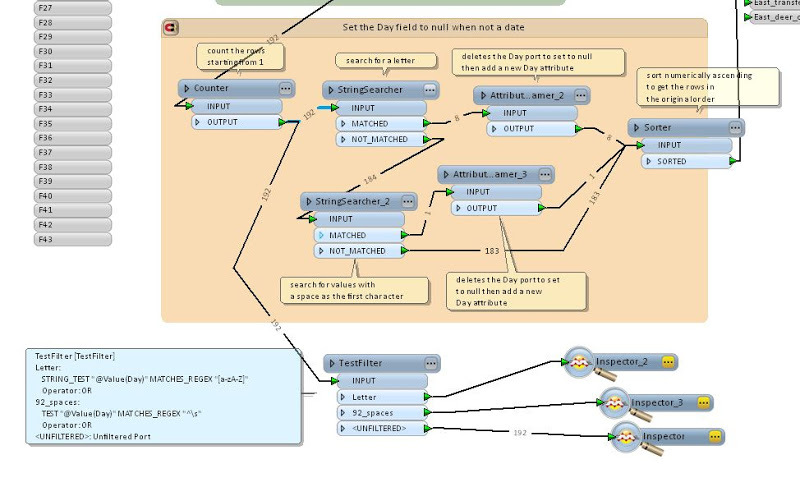I'm using FME 2013 SP1.
I'm reading values from Excel. When I encounter any alphabet character, I want to replace the full value with a null.
I'm fiddling with a StringReplacer and using a regular expression [a-zA-Z], but not sure what I can put in the Replacement Text.
My source data in column looks like this:
2013-05-31 00:00:00
Today
Day 0
Day 1
Day 2
Day 3
Day 4
Day 5
Day 6
I want the date string to remain in the column. I want the "Today" and "Day x" values to be converted to null values...
Sarah










